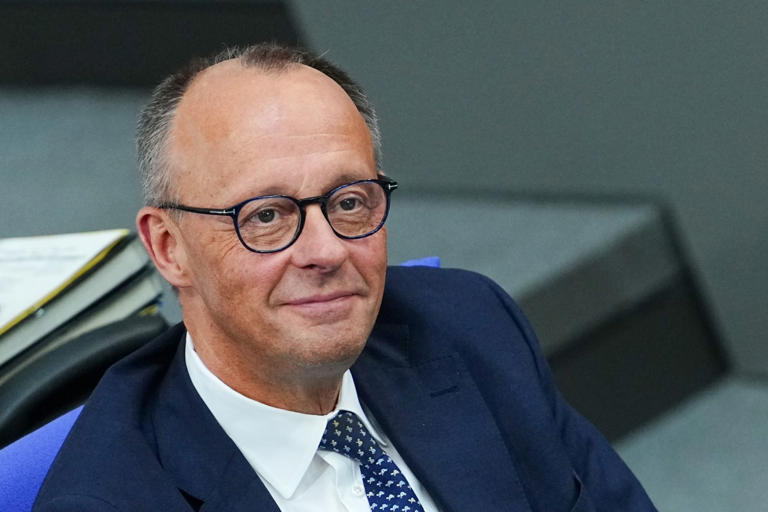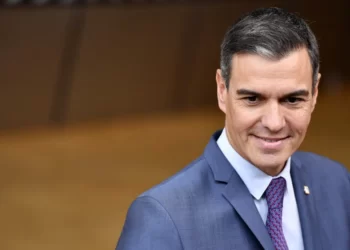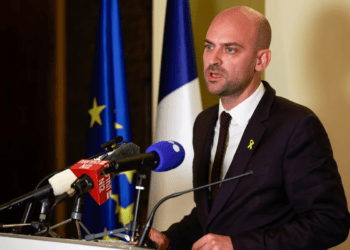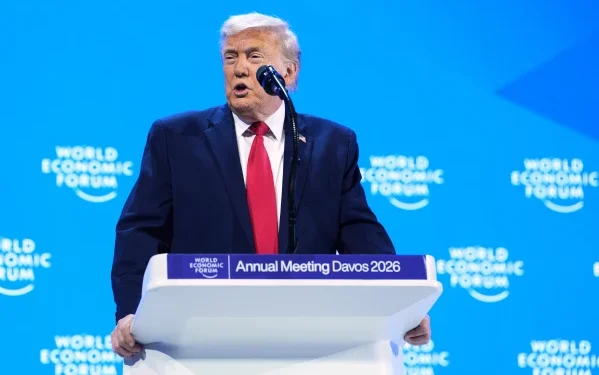German Chancellor, Friedrich Merz has pledged a tough new migration policy, citing years of uncontrolled immigration and weak labor market integration.
This came as he presented his agenda in his first Bundestag address.
Merz laid out an agenda calling for reform, national renewal and assertive international leadership.
The coalition, he said, will govern under the banner of “Responsibility for Germany.”
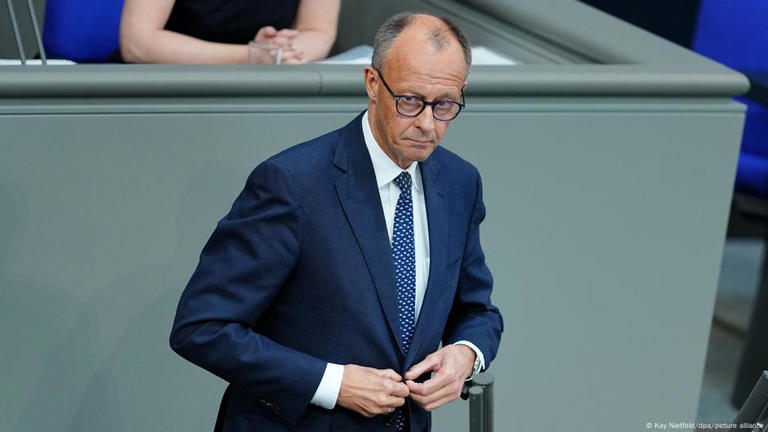
He stressed that Germany would remain a country of immigration but with more control, rejections, and returns.
“We have allowed too much uncontrolled immigration and have enabled too little qualified migration into our labor market — and especially into our social security systems.”
Friedrich Merz
Plans include stricter border enforcement, ending certain admissions, and launching a return initiative to countries like Syria and Afghanistan.
At the same time, integration would be supported, especially for well-integrated individuals.
Also, Merz unveiled a sweeping economic recovery package, declaring that Germany must overcome an “unprecedented” recession by removing barriers to growth.
“We will do everything we can to put Germany’s economy back on a growth path — by investing and reforming. The two go hand in hand. We can once again become a locomotive of growth — one that the world looks upon with admiration.”
Friedrich Merz
Merz outlined several core measures such as immediate tax relief for corporate investments, a five-year phased reduction in corporate tax rates, €150 billion for infrastructure upgrades, a new Ministry for Digitalization and Modernization and a 24-hour fast-track for startup registration.
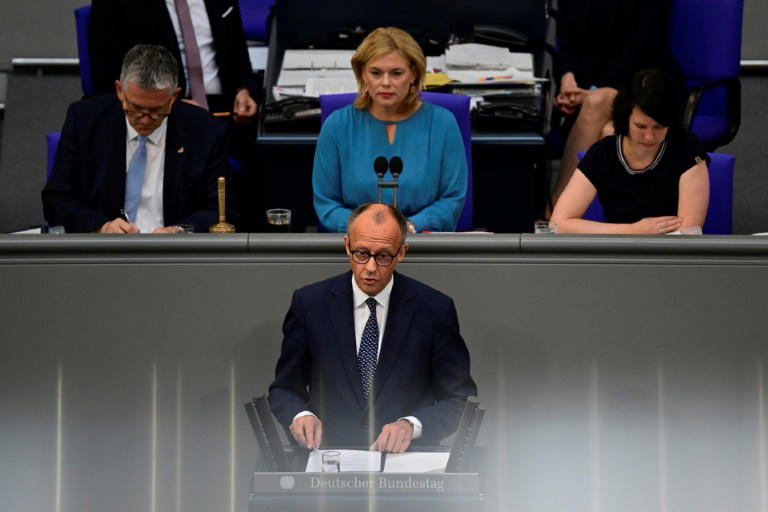
He pledged to repeal the controversial supply chain due diligence law and simplify regulations across sectors. “Let’s give businesses and workers more trust, more freedom, and less bureaucracy,” Merz said.
Merz was emphatic in framing Russia’s war in Ukraine as a direct threat to European peace.
“This terrible war and its outcome will not only determine the fate of Ukraine. Its outcome will determine whether law and justice continue to apply in Europe and the world — or whether tyranny, military violence, and the naked law of the strongest will prevail.
“What is at stake in Ukraine is nothing less than the peace order of our entire continent.”
Friedrich Merz
Germany, he said, would reassert its leadership role in Europe, rebuild trust with partners, and back Ukraine unambiguously.
“We are not a party to the war, and we do not intend to become one. But we are also not disinterested third parties or neutral mediators between the fronts. There must be no doubt where we stand: unambiguously on the side of Ukrainians.”
Friedrich Merz
Promising the Bundeswehr (armed forces) would become “the strongest conventional army in Europe,” Merz pledged sustained investment and a new voluntary national service.
He noted that it is appropriate for the “most populous and economically strongest country in Europe.” He added, “That is what our friends and partners expect of us — indeed, they are explicitly demanding it.”
Additionally, Merz paid tribute to his predecessor Olaf Scholz for his response to Russia’s invasion of Ukraine.
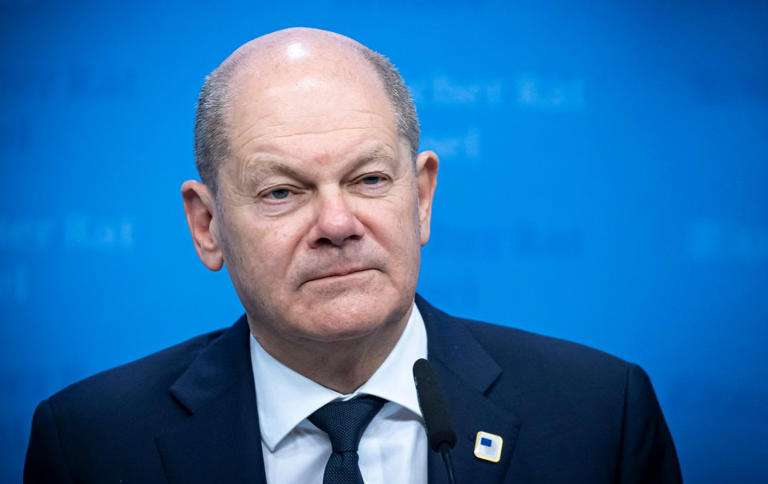
Merz addressed Scholz personally, “Your response to Russia’s war of aggression against Ukraine was pioneering — and historic.” For that, Merz stated, that Scholz has the thanks and recognition of the Bundestag and the entire country.
Scholz has been praised for announcing a shift in Germany’s approach to its military, boosting defense spending and ending reliance on Russian energy.
He later became a key supporter of Ukraine through arms, aid and EU unity.
Merz Announces New Pragmatic Approach On Climate
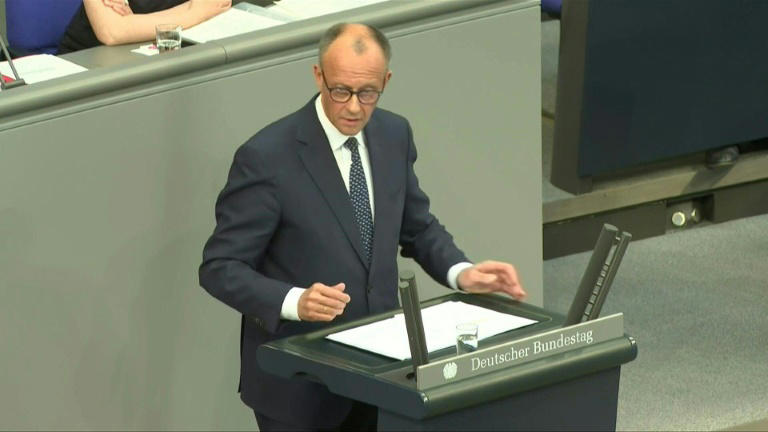
Moreover, Merz said that his new government would stand by Germany’s and Europe’s climate goals, but that it would adopt new pragmatic approaches.
The central instrument, he said, would be carbon pricing — a market-based monetary cost is applied to greenhouse gas emissions.
However, he said, the revenues from this would not disappear into the federal budget, but be returned directly to businesses and citizens.
“Moreover, we will align our energy policy systematically with affordability, cost-efficiency, and security of supply — pragmatically, free of ideology, and open to all technologies.”
Friedrich Merz
Merz took power last week. Elected in a historic second-round vote, he aims for swift action on growth.
READ ALSO: Prof. Avea Nsoh Calls Sammy Gyamfi’s Dollar Gift A Sign of Immaturity

